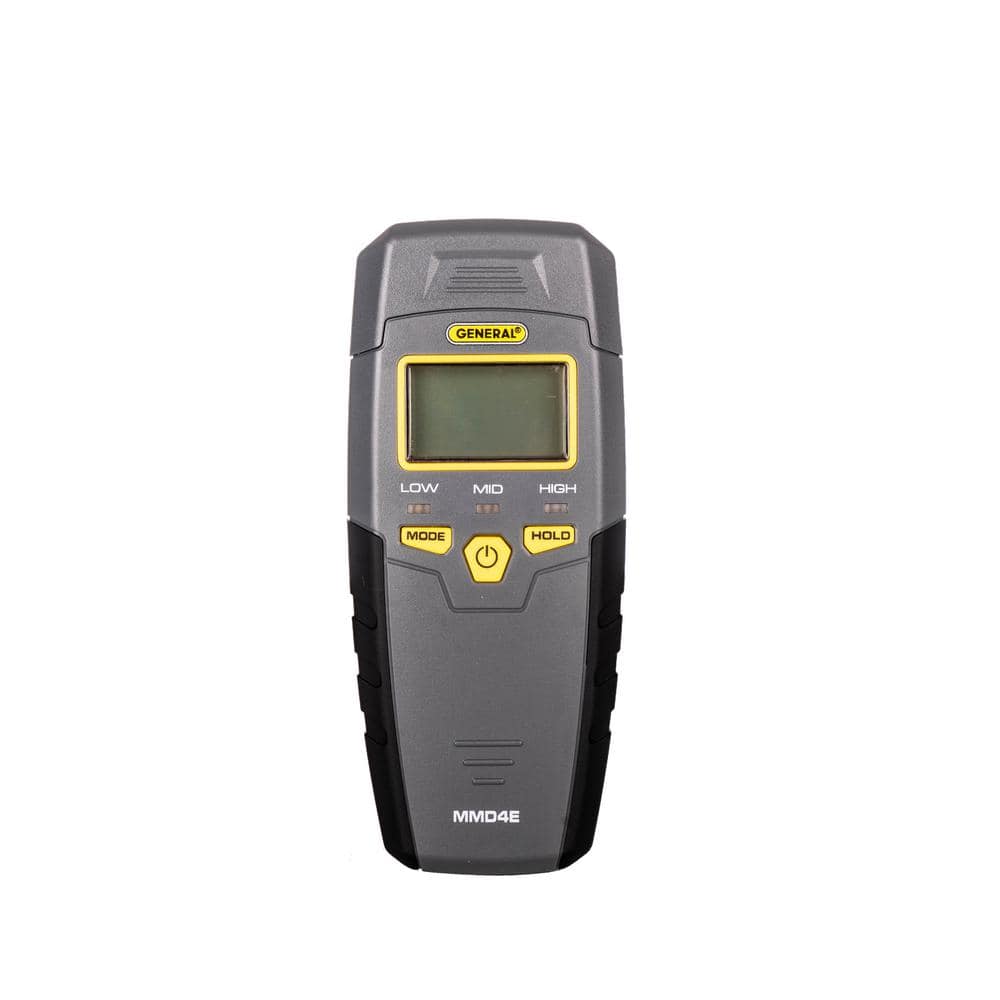The Ultimate Overview to Dampness Meters: A Comprehensive Overview and How They Can Conserve You Cash
In the realm of building upkeep, building and construction, and numerous markets, the value of accurately gauging wetness levels can not be overemphasized. Dampness meters work as important tools in detecting and checking moisture material in materials, aiding in protecting against expensive damages and making sure the quality of items. Comprehending the subtleties of different kinds of moisture meters, their applications, and the possible cost-saving benefits they offer can be a game-changer for businesses and specialists alike. Uncovering how these tools can not only improve processes yet also contribute to financial cost savings is a trip worth getting started on.
Types of Dampness Meters
One common type is the pin-type dampness meter, which gauges the electric resistance in between two pins inserted into a product. Pinless dampness meters, on the other hand, use electromagnetic sensing unit plates to check a bigger area without causing damages to the product's surface area.

Moreover, there are likewise specialty dampness meters created for particular products like grain, soil, or hay. These meters provide exact wetness readings customized to the unique buildings of the material being tested. Infrared dampness meters determine the thermal properties of a product to establish its wetness content non-invasively, making them valuable for applications where pin or pinless meters may not appropriate. Recognizing the different kinds of wetness meters available can assist industries pick one of the most appropriate device for their specific wetness measurement requirements.

Benefits of Making Use Of Moisture Meters
Moisture meters offer indispensable advantages in properly assessing and keeping track of moisture degrees in varied materials and settings. One of the key advantages of utilizing wetness meters is the prevention of potential damages caused by excess dampness.
Additionally, making use of wetness meters can lead to boosted energy performance. In agricultural setups, dampness meters play a critical function in optimizing crop returns by allowing farmers to keep an eye on soil wetness levels and make notified watering decisions.
Exactly How to Select the Right Moisture Meter
Choosing the ideal moisture meter includes taking into consideration essential aspects such as material compatibility, measurement variety, and calibration precision. When choosing a wetness meter, it's necessary to guarantee that the meter appropriates for the specific product you will certainly be screening. Different materials have varying electric residential or commercial properties that can influence moisture readings, so picking a meter made for your product is crucial for precise outcomes. In addition, consider the measurement variety of the wetness meter. Make sure that the meter can detect wetness levels within the variety needed for your applications. Calibration precision is one more important variable to maintain in mind. Select a my explanation moisture meter with trustworthy calibration to make sure specific and regular analyses. Some meters might call for regular calibration modifications, so comprehending the calibration process is very important. By thoroughly examining these variables, you can select a wetness meter that satisfies your needs and provides exact dampness dimensions for your jobs.
Proper Strategies for Moisture Meter Use

Price Savings Through Moisture Meter Applications
Exactly how can the calculated usage of dampness meters lead to considerable cost financial savings across numerous markets? In the farming market, moisture meters help in identifying the optimum time for gathering click to read plants, stopping over-drying or excess wetness that can influence the final item's quality.
In a similar way, in building, dampness meters help protect against pricey problems by spotting dampness levels in structure products, such as wood or concrete, which can result in architectural problems otherwise dealt with without delay. By identifying issue locations at an early stage, contractors can take restorative actions to prevent substantial repair services or substitutes, eventually conserving time and cash.
Additionally, in the food handling sector, wetness meters are essential for keeping an eye on item top quality and guaranteeing compliance with safety and security regulations. By accurately gauging moisture material in foodstuff, suppliers can prevent putridity, preserve freshness, and lower waste, resulting in considerable price financial savings. On the whole, the strategic application of moisture meters is an important investment that can cause significant cost reductions and improved efficiency across various industries.
Conclusion
In conclusion, moisture meters are valuable devices for detecting and determining moisture levels in numerous products. By making use of the ideal wetness meter and complying with appropriate techniques, users can effectively prevent expensive damages brought on by excess moisture. Buying a top quality wetness meter can cause considerable cost financial savings in the future by identifying potential problems beforehand and making it possible for prompt remediation. Inevitably, dampness meters are necessary instruments for maintaining the honesty and durability of materials and frameworks.
Moisture meters offer as essential devices in discovering and monitoring moisture material in products, assisting in protecting against expensive damages and ensuring the top quality of products. Infrared moisture meters gauge the thermal properties of a product to determine its dampness material non-invasively, making them valuable for applications where pin or pinless meters may not be ideal.Moisture meters supply visit their website invaluable advantages in properly evaluating and checking dampness degrees in diverse materials and settings. In agricultural settings, dampness meters play a crucial role in enhancing plant returns by making it possible for farmers to keep track of soil wetness levels and make notified watering decisions.In final thought, dampness meters are beneficial tools for finding and gauging moisture levels in various products.
Comments on “Why Every Home Owner Needs a Moisture Meter: Key Advantages and Features”